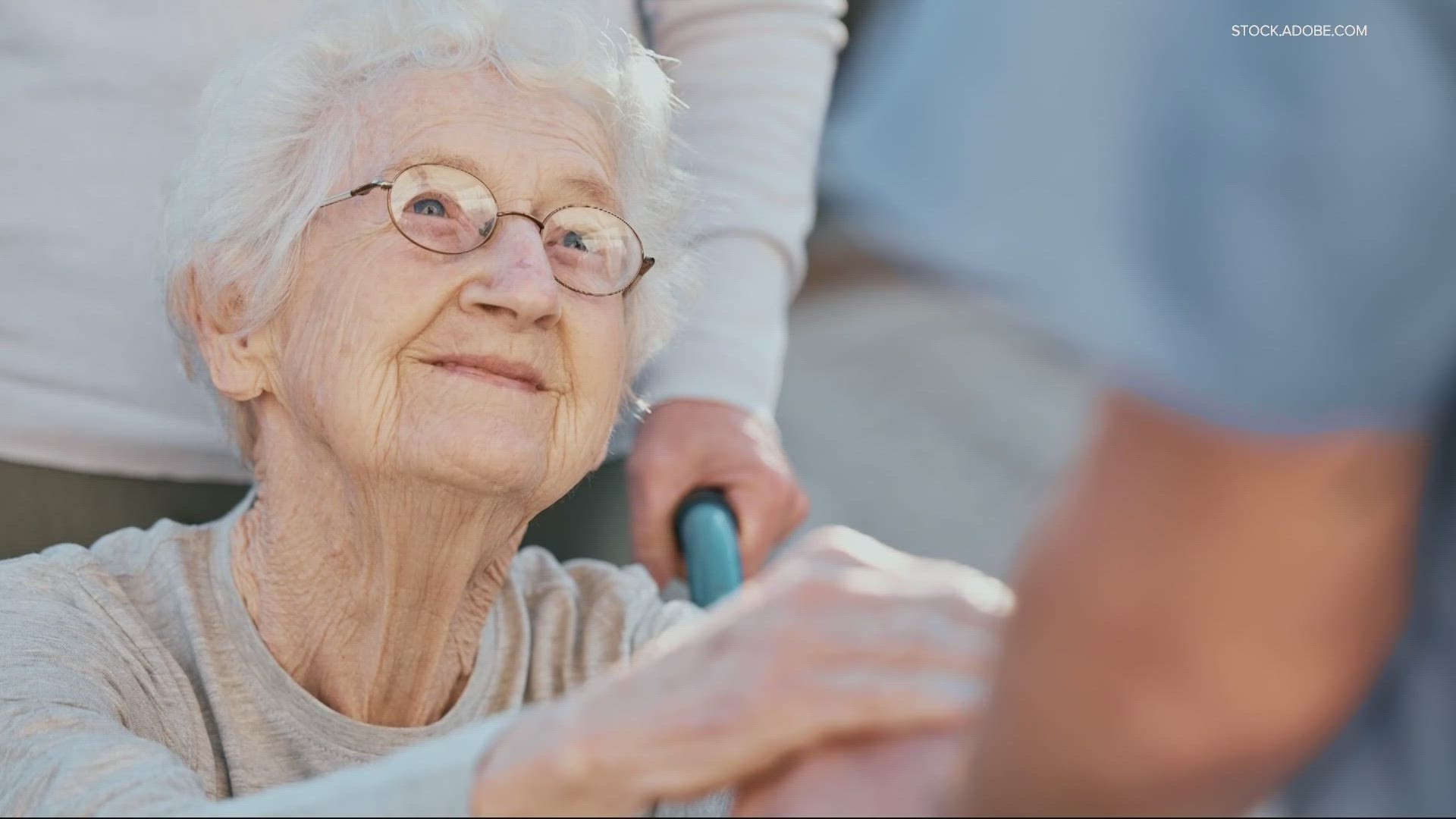MORO, Oregon — A new program aims to provide rural healthcare workers with the tools they need to detect Alzheimer’s disease early.
Sherman County Medical Clinic in Moro, Oregon is one of only five sites across the country selected to test the new toolkit.
Over a three-month period, Physician Assistant Erin Haines has been testing the new cognitive decline assessment toolkit at the clinic.
“This is where the early detection can actually lead to disease modification,” Haines said.
It’s estimated that 69,000 people 65 and older are living with Alzheimer’s disease in Oregon, according to the Alzheimer’s Association. The rate of Alzheimer’s disease and other dementias only continues to grow yearly.
“The population in the U.S. is growing, with certainty and that’s happening in rural communities,” Haines said.
People in rural communities may face increased barriers to accessing care and early detection. These communities also tend to be a little bit older in average age.
In Sherman County, where the clinic is located, the average age is 47.8. That’s more than ten years older than the average age in an urban area, such as Multnomah County at 37.5.
“So, it's going to affect our little community a little bit more when we're talking about aging,” Haines said. “The other piece of it is when you live out two and a half hours away from an urban facility or an urban center, then as much care that you can give for prevention — that's the better treatment process for your patients.”
The project is funded by the Davos Alzheimer’s Collaborative and is led by the American Academy of Physician Associates and the Cleveland Clinic.
The idea is to develop a cognitive assessment toolkit for medical providers to increase the rates of cognitive screenings of older adults.
It ensures providers, like Haines, are up to date on screening tools and protocols to help them best interpret results. It also provides necessary resources for proactive conversations with their patients.
“It's been implemented in all of my Medicare exams. We sit down and we've just normalized it,” Haines said. “I tell my patients, ‘Here we go. We're going to check some memory today.’ And I get one of two reactions: ‘Oh Gee, Doc, are you worried about me?’ or ‘Thanks, because I couldn't remember somebody's name the other day and I'm a little worried about it?”
This time of preventative care will hopefully lead to better outcomes for patients dealing with cognitive decline.
Early diagnosis makes way for early intervention and treatments. It also helps family, who most often becomes caregivers. It can give them time to learn, adapt and best help their loved ones.
“We can look for little tweaks that we can do in either their lifestyle or how they're managing their independence to keep them as independent as possible,” Haines said.
For more resources visit www.alz.org.

